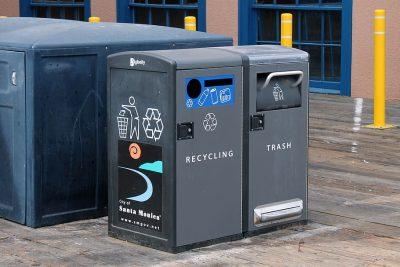The climbing costs of recycling have placed Boston in an environmentalist dilemma.
The city’s recycling program cost approximately $200,000 in 2017, City Councilor Matt O’Malley said in a Council meeting last week. O’Malley said if the city fails to find and implement cheaper solutions, recycling may cost the city upwards of $2 million in the coming year.

Chris Coakley, public information officer at the Boston Department of Public Works, wrote in an email that recycling prices have skyrocketed over recent years.
“China, who was the principal buyer of recyclables, no longer accepts shipments over a certain percentage of contaminated material,” Coakley wrote. “The impact of this means that more processing needs to be done on current recycling to be sold — this costs more.”
Coakley wrote another obstacle has to do with lower market demand for recyclables, which in turn reduces the revenue that recycling turns out — consequently increasing its cost per ton.
“In 2017, Boston was paying $5 per ton at the most,” Coakley wrote. “Over the last six months, the City is paying on average close to $140 per ton to dispose of recyclables.”
O’Malley proposed other options at the meeting, including enacting curbside composting for biodegradables and establishing a recycling plant within Boston rather than shipping waste to the Casella Recycling Plant in Charlestown.
Clint Richmond, advocate at the Massachusetts chapter of Sierra Club, said the city has begun to alleviate the crisis through measures, such as its ban on single-use plastic. He said the act of recycling, however, is not an end-all solution.
“This is something I’ve said before. Recycling can be a fig leaf covering up the plastics problem,” Richmond said. “We have a lifestyle that’s based on permanent overconsumption. So, recycling doesn’t absolve us of overconsumption. We’re just consuming too much stuff.”
Richmond also said individual Boston residents can get involved by collecting their paper and bags, as well as recycling their cardboard.
“With all the packaging that we’re receiving from mail-order services and the traditional catalog businesses like Amazon or eBay, we could start collecting cardboard separately,” Richmond said. “Cardboard is actually somewhat high value, but when you throw it in with a single stream, it’s value goes down.”
Richmond said he believes the real focus should be on the production side of goods rather than consumption. The answer, he said, is not recycling but instead redesigning packaging to be reusable.
“There are these stores that we are hearing about that don’t have any packaging, everything’s bulk,” Richmond said. “But that’s a really radical idea. That’s not going to happen overnight.”
South End resident Stephen Rauch, 64, said he is also more concerned about how consumer goods are made than the recycling crisis itself.
“Manufacturers are not being efficient,” Rauch said, “and causing potentially more and more issues by making things that aren’t recyclable.”
Marissa McClain, 28, of Back Bay said with growing efforts to combat climate change, burying the issue cannot be an option.
“I mean, obviously we should recycle,” McClain said. “Throwing trash into landfills will just ruin the earth.”
Sandra Padilla, 30, of East Boston said she is surprised to hear about the rising costs of recycling.
“That is a little crazy, huh?” Padilla said. “Because you would think that if it’s helping the planet, it wasn’t going to end up costing money.”




















































































































